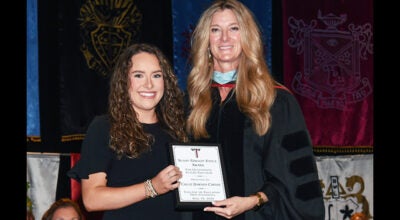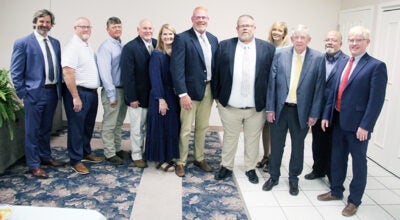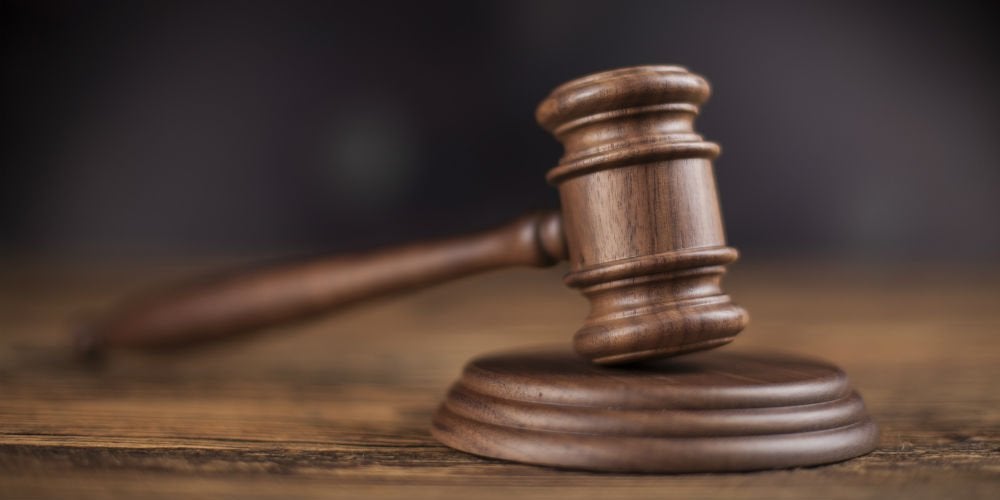4 proposed amendments address Ten Commandments, abortion, elections
Published 3:11 am Thursday, November 1, 2018
Voters statewide will have the chance to decide the fates of four proposed amendments to the Alabama Constitution on Tuesday.
The amendments, in order, address displays of The Ten Commandments in public areas, abortion, the makeup of the University of Alabama Board of Trustees, and special elections involving vacancies in the Alabama House of Representatives and Alabama Senate.
The Fair Ballot Commission is charged with explaining the effects of the amendments, if approved, in plain language.
Ten Commandments
Proposed Amendment 1 authorizes the display of the Ten Commandments on state property and property owned or administrated by a public school or public body. But it prohibits the expenditure of public funds in defense of the constitutionality of this amendment.
According to the Fair Ballot Commission, the amendment “makes clear that the Ten Commandments may be displayed on public property so long as the display meets constitutional requirements, such as being displayed along with historical or educational items. Amendment 1 also provides that no public funds may be used to defend this amendment in court.”
Sanctity of life
Proposed Amendment 2 declares that it is the public policy of this state to recognize and support the sanctity of unborn life and the rights of unborn children.
According to the Fair Ballot Commission, “under current law, the state constitution does not include any language that directly relates to the importance of unborn life or the rights of unborn children, nor does it include any language that directly relates to abortion or the funding of abortions using state funds.
“Additionally, the amendment would make clear that the state constitution does not include a right to abortion or require the funding of an abortion using public funds. The proposed amendment does not identify any specific actions or activities as unlawful. It expresses a public policy that supports broad protections for the rights of unborn children as long as the protections are lawful.”
UA trustees
Proposed Amendment 3 defines membership on the University of Alabama Board of trustees and removes the current requirement that trustees vacate office at the annual meeting of the board following their seventieth birthday.
According to the Fair Ballot Commission, “Under current law, the University of Alabama Board of Trustees is composed of 16 people: three members from the congressional district in which the Tuscaloosa campus is located, two members from each of the other six congressional districts in the state, the Governor, and the State Superintendent of Education. So, if the number of congressional districts in Alabama increased or decreased in the future, the number of trustees would also increase or decrease. Additionally, other than the Governor and the State Superintendent of Education, current law requires a trustee to retire from the board following his or her seventieth birthday.
“Amendment 3 does three things. First, it provides that the board will be composed of members from congressional districts as those districts existed on January 1, 2018, meaning any future changes to the number of congressional districts in Alabama would not impact the number of board members. Second, it removes the State Superintendent of Education from automatically having a seat on the board. Third, it allows a trustee to serve after his or her seventieth birthday.”
Special elections
Proposed Amendment 4 would reduce the number of special elections held, and provide that, if a vacancy in either the House of Representatives or the Senate occurs on or after October 1 of the third year of a quadrennium, the seat would remain vacant until a successor is elected at the next succeeding general election.
According to the Fair Ballot Commission, “Amendment 4 provides that when a vacancy occurs in the state legislature on or after October 1 of year three of the four-year term, the seat will remain vacant until the next general election, which occurs in November of the fourth year of the term. The Governor would no longer have the power to schedule a special election to fill a vacancy in these circumstances, and public funds that would have been spent on the special election would be saved.”





